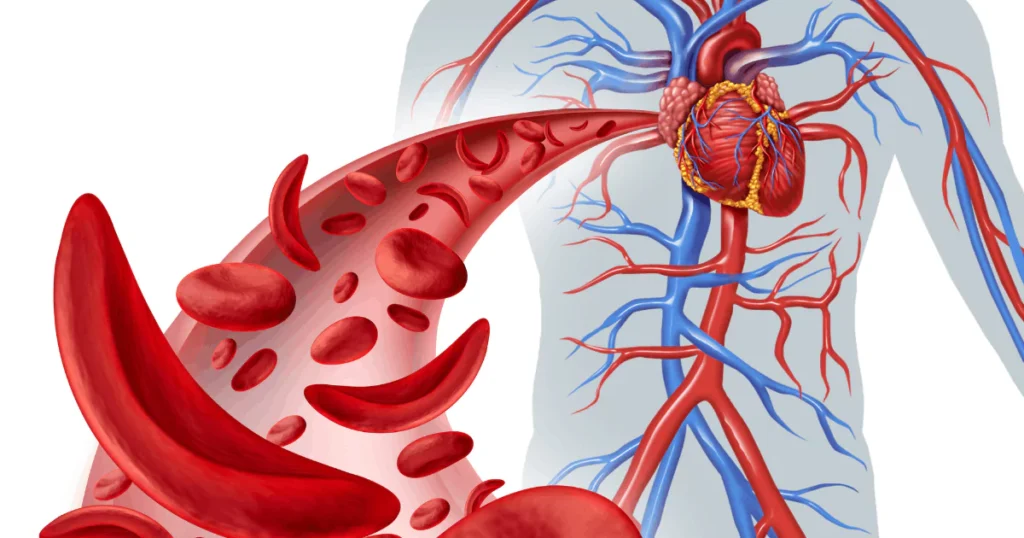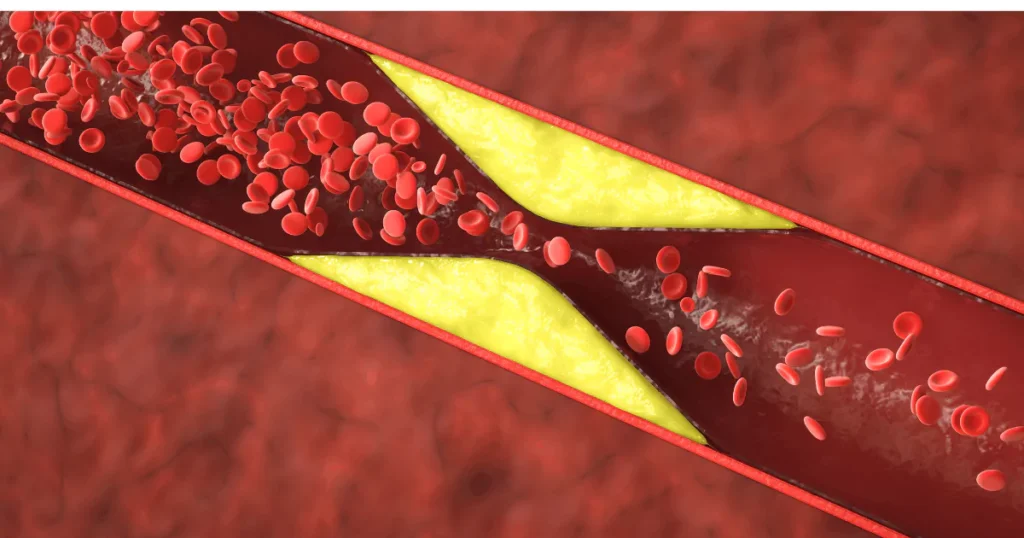Cardiovascular exercise is one of the best ways to keep your heart healthy. It strengthens the heart muscle, allowing it to pump blood more efficiently and improve circulation throughout the body. Regular cardiovascular exercise can also lower blood pressure, reducing the risk of heart disease. It also helps regulate cholesterol levels, reducing the amount of harmful cholesterol that can clog arteries.
Cardiovascular exercise promotes better oxygen flow, giving you more energy and helping your body work well. Additionally, it supports weight management, which is important for heart health since excess weight can stress the heart. By committing to regular cardiovascular exercise, you’re building a strong foundation for a healthier, longer life.

The Benefits of Cardiovascular Exercise
Cardiovascular exercise, also known as aerobic exercise, is more than just a way to stay in shape; it’s essential for keeping your heart strong and healthy. When we talk about cardiovascular health, we’re really talking about the health of our heart, blood vessels, and circulation.
Strengthens the Heart Muscle
Think of your heart as a muscle, like the biceps in your arms. Just as lifting weights strengthens your arm muscles, regular cardio workouts strengthen your heart. With each beat, the heart pumps blood throughout the body, and cardio exercises help your heart work more efficiently. Over time, this repeated activity conditions the heart, making it stronger.
A stronger heart can pump blood more effectively with less effort, meaning it doesn’t have to work as hard as it once did to supply your body with oxygen. This can reduce your resting heart rate over time, a positive sign of heart health. It’s like tuning up a car engine to run smoothly; with regular exercise, your heart performs better and lasts longer.
Improves Blood Circulation
Cardiovascular exercise is a powerful way to boost your heart health and improve your body’s circulation. When you engage in activities like jogging, brisk walking, or cycling, cardiovascular exercise helps your heart pump blood more effectively, delivering oxygen and nutrients to muscles and organs. Imagine it like widening a busy road: blood flows more freely, reducing strain on the heart and helping it work smoothly for a lifetime.

With consistent cardiovascular exercise, waste products are removed from your body more efficiently, which supports overall energy levels and brain health. Better blood flow also brings a natural glow to your skin, leaving you looking and feeling revitalized. Over time, these benefits make cardiovascular exercise essential not only for a healthy heart but also for enhanced mental clarity and improved daily energy.
Lowers Blood Pressure
- What is High Blood Pressure?
- Also known as hypertension, it forces the heart to work harder to pump blood.
- Similar to pushing water through a narrow hose, increased pressure over time strains the heart and blood vessels.
- How Cardio Helps:
- Regular cardio exercises, such as walking, cycling, and swimming, can widen blood vessels, improve blood flow, and reduce blood pressure.
- Cardio helps blood vessels relax, making them more flexible and less resistant to blood flow.
- Health Benefits:
- Lowers the risk of serious health issues, such as heart attack, stroke, and kidney disease.
- Improves overall heart health and supports better circulation.
- Effective Cardio Options:
- Brisk walking, jogging, swimming, cycling, and aerobic classes effectively lower blood pressure.
- Even moderate activities like 30 minutes of walking daily can significantly benefit blood pressure levels.
- Scientific Support:
- Studies show regular cardio exercise reduces blood pressure in people with hypertension.
- Small but consistent improvements add up to significant heart health benefits over time.
- Tips for Success:
- Start with low- to moderate-intensity cardio if you’re new to exercise.
- Aim for at least 150 minutes of moderate aerobic exercise each week, as recommended for heart health.
Reduces Cholesterol Levels
Cardiovascular exercise is one of the best ways to improve heart health because it helps balance cholesterol levels. We have two types of cholesterol: HDL, known as “good” cholesterol, and LDL, often called “bad” cholesterol. Too much LDL builds up in our arteries. It can create a plaque that narrows the passageways, blocking blood flow. If left untreated, this can lead to heart attacks or strokes.

Cardiovascular exercise increases HDL levels, which act like a cleaning crew that sweeps LDL out of the arteries and transports it to the liver for breakdown. This process prevents blockages and keeps blood flowing smoothly. By raising HDL and lowering LDL, cardiovascular exercise protects our arteries, reduces health risks, and strengthens the heart over time.
Helps Control Weight
Extra weight stresses your heart, making it work harder than needed. Cardio exercises, like running, cycling, or even dancing, help burn calories, contributing to weight loss or maintaining a healthy weight. When you’re at a healthy weight, your heart can work more efficiently, reducing its workload and, in turn, lowering your risk of heart disease.
Consider this like lifting a heavy box versus lifting a lighter one. The heavier the load, the more strain you put on your muscles. Similarly, when your heart has less weight to support, it functions more efficiently, extending its lifespan and improving health.
Reduces Stress and Enhances Mood
Stress affects our hearts in ways we often don’t realize. When stressed, our body releases hormones like cortisol and adrenaline, which increase heart rate and blood pressure. Over time, this can put extra strain on the heart. Cardio exercise releases endorphins, natural mood boosters that help reduce stress and anxiety.
Think of endorphins as the body’s “feel-good” chemicals. When you go for a brisk walk or a short jog, your body releases these chemicals, helping you feel more relaxed and positive. This stress relief has a direct benefit on heart health, as it reduces the likelihood of stress-related heart complications, making it easier for your heart to function smoothly.
Lowers the Risk of Heart Disease
Cardio’s impact on heart disease risk:
| Benefit | Description |
|---|---|
| Better Circulation | Strengthens heart, improves blood flow |
| Lowers Blood Pressure | Reduces strain on heart and vessels |
| Healthy Cholesterol | Raises good HDL, lowers bad LDL |
| Supports Weight Loss | Helps maintain a healthy weight |
| Reduces Inflammation | Lowers inflammation linked to heart issues |
| Regulates Blood Sugar | Controls blood glucose, reducing diabetes risk |
Enhances Lung Capacity and Endurance
Cardiovascular exercise is a powerful way to train your body to use oxygen more efficiently, benefiting your lungs and heart. When you start cardiovascular exercise, it might feel hard because your lungs are not yet used to the extra need for oxygen. However, with regular practice, your body gradually adapts, making it easier to keep going longer.
Cardiovascular exercise builds endurance over time, meaning everyday activities, like walking up stairs or carrying groceries, feel less tiring. This increased stamina doesn’t just help you feel more energetic, but it also supports heart health. With improved endurance, your heart doesn’t have to work as hard to keep up with physical activity, reducing strain and promoting better overall fitness.
Supports Better Sleep
Quality sleep is essential for heart health, and cardio exercise has been shown to improve sleep patterns. Physical activity during the day can help you fall asleep faster and enjoy a deeper, more restful sleep. When well-rested, your heart has time to recover and repair, reducing stress on the heart.
Sleep is like a reset button for the body. Just as a phone needs to recharge, your heart benefits from restful sleep to recharge for the day ahead. Improved sleep from regular cardio helps keep your heart functioning smoothly and reduces the risk of high blood pressure, stroke, and heart disease.
Getting Started with Cardio for Heart Health
Starting a cardio routine doesn’t have to be overwhelming. Small steps can make a big difference. Begin with something you enjoy, such as walking, cycling, swimming, or dancing. According to the American Heart Association’s guidelines, aim for at least 150 minutes of moderate cardio exercise per week or 75 minutes of vigorous exercise.
Remember that you don’t need to push yourself too hard, especially if you’re new to exercise. Gradually increase your time and intensity as your endurance improves. Even a 10-minute walk daily can have lasting benefits for your heart health.
Conclusion
Cardio exercise is one of the most effective ways to keep your heart healthy and strong. From lowering blood pressure to reducing stress, improving circulation, and strengthening the heart muscle, the benefits are extensive. Making time for regular cardio isn’t just about fitness—it’s a way to ensure your heart stays in optimal shape for years. So, whether it’s a jog in the park, a dance class, or a simple walk, every step you take is a step toward a healthier heart and a healthier life.

